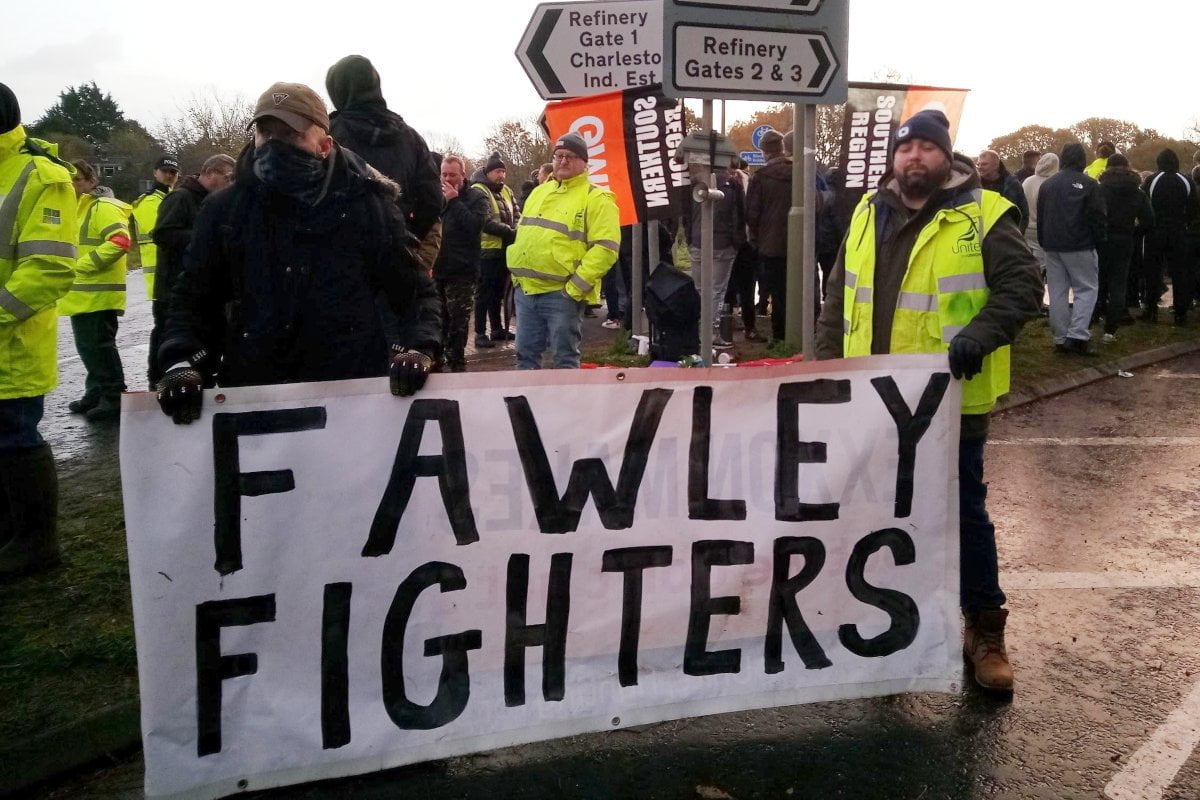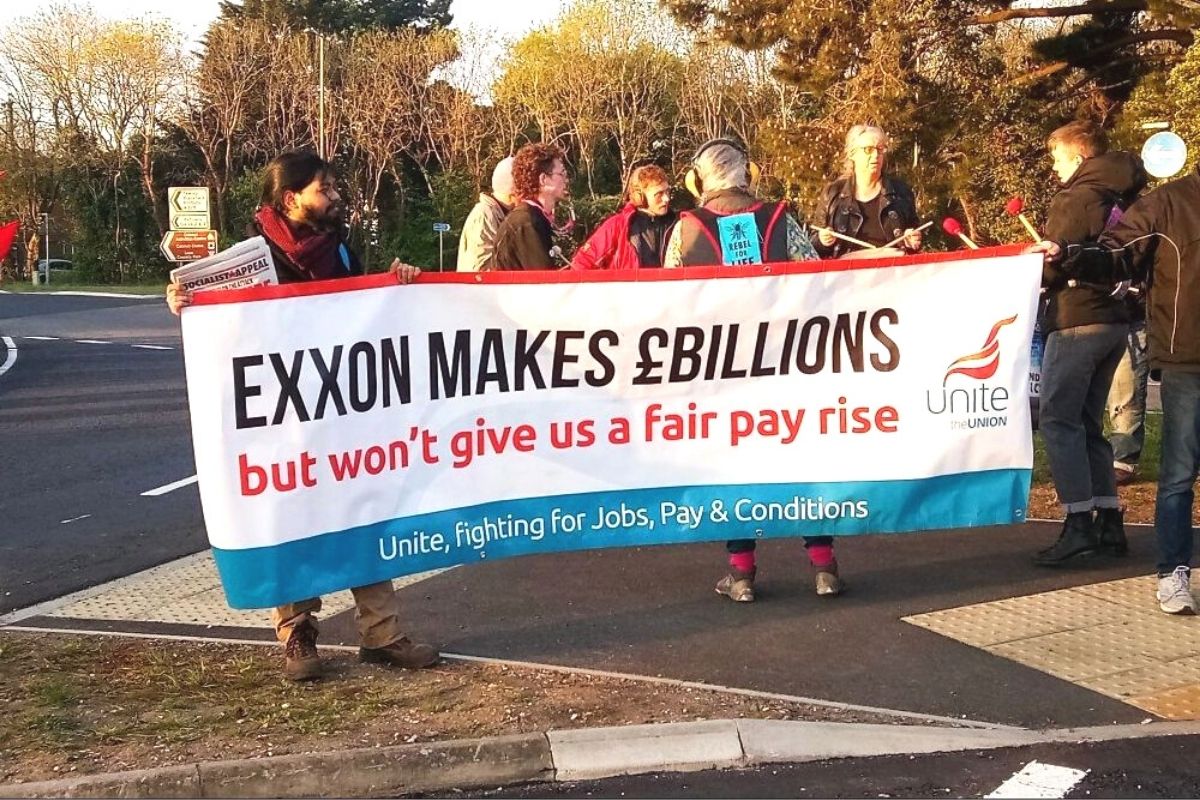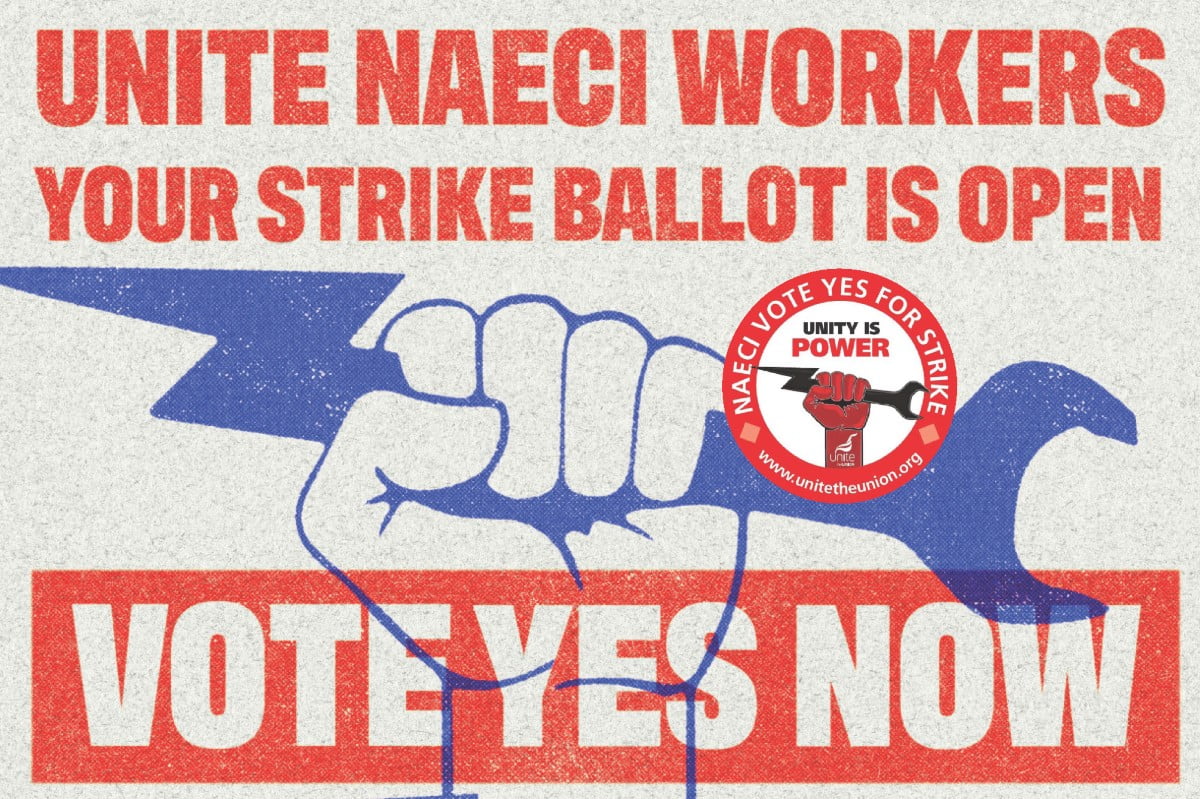In response to the ongoing cost-of-living crisis, and the refusal of the bosses to address this, around 3,000 workers employed on NAECI – the National Agreement for the Engineering Construction Industry – have voted overwhelmingly to strike.
These engineering construction workers, organised with Unite the Union and GMB, carry out vital maintenance work at major UK industrial facilities, including oil refineries, power stations, nuclear sites, and other important infrastructure. They also perform new-build work, when a site needs to expand.
Despite this, workers in the sector have seen pay drop by around 20% in real terms over the last two years.
Compared with this, the bosses’ offer – a pay rise of 10% for 2024 and 5% for 2025 – is absolutely miserable. Even worse, the employers plan to pay for it, in part, by scrapping a supplementary cost-of-living payment that the workers were receiving.
It’s no surprise, then, that 86% of NAECI workers have voted to reject this insulting ‘offer’ in a recent national ballot, paving the way for mass strike action at key industrial locations across the country.
Strength
 This will not be the first time that NAECI workers have taken to the picket lines in defence of their pay and conditions. In 2022, an intense strike broke out at Fawley refinery, involving the use of hard picketing to prevent lorries from entering the facility.
This will not be the first time that NAECI workers have taken to the picket lines in defence of their pay and conditions. In 2022, an intense strike broke out at Fawley refinery, involving the use of hard picketing to prevent lorries from entering the facility.
Wildcat strikes are not infrequent at NAECI sites also. Workers have been known to down tools en masse in response to grievances. Managers who push their luck are often sharply reminded of who really runs the show.
Furthermore, these are trained, specialist workers, who are hard to replace – and they know it. Threats of scabbing, or of the bosses sacking workers for taking illegal action, therefore only have a limited effect.
As an explosion at Fawley in March proved, even a slight error on these sites can have potentially catastrophic results. The employers may want to break strikes, but they’re also wary of permanently damaging their property – and their profits.
Impact
 A nationwide strike of NAECI workers would represent an industrial earthquake in Britain.
A nationwide strike of NAECI workers would represent an industrial earthquake in Britain.
Sites such as Fawley, Pembroke, or Grangemouth oil refineries play an essential role in the UK economy. Fawley alone produces 20% of the diesel and petrol used in Britain.
Elsewhere, Sellafield nuclear site is the largest single private employer in Cumbria. Only local government counts more employees on its payroll.
And as temperatures drop, it is clear that power stations – such as those at Drax, Torness, or Hartlepool – will be facing considerable demand to keep households going through the winter months.
Without the repairs and maintenance carried out by NAECI workers, such sites cannot operate at full capacity. Some may even be forced to shut down altogether. This would cost the companies involved millions in profits, and could even lead to fuel and power shortages across the country.
Such strikes could therefore impact the whole of the British economy, demonstrating – both to themselves and others – the very literal power that these workers hold.
Struggle
There is clearly an appetite for action across the sector. Already, the mood on the ground has pushed Unite into extending the strike ballot to additional sites.
These strikes must now spread as far as possible. The greater the number of workers walking out, the more helpless the bosses will be to replace them, and the stronger this collective action will be.
Alongside fighting over pay, this militant industrial struggle must also be linked to bold political demands: to take the energy sector and other key infrastructure out of the hands of the capitalists (a demand that Unite already partially supports), and placed under public ownership, with rank-and-file committees organised by the NAECI workers put in control of these facilities.
As is the case with water, rail, and mail, private profiteering and short-termism have caused enormous damage to the energy industry. These vital parts of the economy should not be left to the anarchy of the market, but must be planned according to need.
It’s high time we showed who really has the power in society: the workers, not the bosses. Victory to the NAECI strike!






